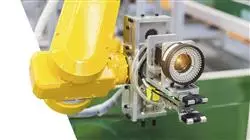University certificate
The world's largest faculty of information technology”
Introduction to the Program
Computer Vision tiene un mercado que está creciendo exponencialmente y está irrumpiendo en todo tipo de industrias comerciales”

Entrenar un modelo desde cero implica tener una gran cantidad de información catalogada previamente, aproximadamente unas 10.000 fotos de cada uno de los tipos a diferenciar. Esto requiere horas hasta conseguir unos buenos resultados. Pero en muchos casos, se puede partir de modelos previamente entrenados, a esta técnica se la conoce como Transfer Learning. Este Postgraduate certificate examina qué modelos de redes están disponibles actualmente para poder facilitar el entrenamiento de un modelo aplicando dicha técnica.
Asimismo, esta titulación analiza los principales casos de uso que existen para la visión por ordenador: clasificación, detección de objetos, identificación de objetos, seguimiento de objetos. Por ejemplo, Google utiliza estos algoritmos para poder realizar búsquedas a partir de imágenes. Facebook, por ejemplo, los utiliza para poder identificar y etiquetar de forma automática las personas que salen en una foto. A ello se suma, que los egresados conocerán los usos comerciales de la Visión por Ordenador y dónde aplicar los diferentes modelos.
De esta manera, en tan solo 6 semanas profundizarán en el ámbito de aplicación de Computer Vision, entendiendo las ventajas competitivas que aportan, por lo que se posicionarán en la vanguardia tecnológica y podrán liderar proyectos ambiciosos en el presente y en el futuro. Además, los alumnos disponen de la mejor metodología de estudio 100% online, lo que elimina la necesidad de asistir presencialmente a clases o tener que exigir un horario predeterminado.
Este Postgraduate certificate profundiza en el concepto de Computer Vision, en su importancia y en cuáles son sus aplicaciones en la vida real”
Este Postgraduate certificate en Computer Vision contiene el programa educativo más completo y actualizado del mercado. Sus características más destacadas son:
- El desarrollo de casos prácticos presentados por expertos en Computer Vision
- Los contenidos gráficos, esquemáticos y eminentemente prácticos con los que está concebido, recogen una información práctica sobre aquellas disciplinas indispensables para el ejercicio profesional
- Los ejercicios prácticos donde realizar el proceso de autoevaluación para mejorar el aprendizaje
- Su especial hincapié en metodologías innovadoras
- Las lecciones teóricas, preguntas al experto, foros de discusión de temas controvertidos y trabajos de reflexión individual
- La disponibilidad de acceso a los contenidos desde cualquier dispositivo fijo o portátil con conexión a internet
Computer Vision te será de gran utilidad porque te permitirá: automatizar procesos repetitivos, aumentar la capacidad de control y aprendizaje de tu empresa y reducir el tiempo de tareas que aportan poco valor”
El programa incluye, en su cuadro docente, a profesionales del sector que vierten en esta capacitación la experiencia de su trabajo, además de reconocidos especialistas de sociedades de referencia y universidades de prestigio.
Su contenido multimedia, elaborado con la última tecnología educativa, permitirá a los profesionales un aprendizaje situado y contextual, es decir, un entorno simulado que proporcionará una capacitación inmersiva programada para entrenarse ante situaciones reales.
El diseño de este programa se centra en el Aprendizaje Basado en Problemas, mediante el cual los profesionales deberán tratar de resolver las distintas situaciones de práctica profesional que se les planteen a lo largo del curso académico. Para ello, contarán con la ayuda de un novedoso sistema de vídeos interactivos realizados por reconocidos expertos.
La Inteligencia Artificial tiene muchas ramas y aplicaciones, pero Computer Vision es por lejos la que más repercusión está teniendo"

Examina los usos comerciales de la visión por ordenador y dónde aplicar los diferentes modelos"
Why study at TECH?
TECH is the world’s largest online university. With an impressive catalog of more than 14,000 university programs available in 11 languages, it is positioned as a leader in employability, with a 99% job placement rate. In addition, it relies on an enormous faculty of more than 6,000 professors of the highest international renown.

Study at the world's largest online university and guarantee your professional success. The future starts at TECH”
The world’s best online university according to FORBES
The prestigious Forbes magazine, specialized in business and finance, has highlighted TECH as “the world's best online university” This is what they have recently stated in an article in their digital edition in which they echo the success story of this institution, “thanks to the academic offer it provides, the selection of its teaching staff, and an innovative learning method aimed at educating the professionals of the future”
A revolutionary study method, a cutting-edge faculty and a practical focus: the key to TECH's success.
The most complete study plans on the university scene
TECH offers the most complete study plans on the university scene, with syllabuses that cover fundamental concepts and, at the same time, the main scientific advances in their specific scientific areas. In addition, these programs are continuously being updated to guarantee students the academic vanguard and the most in-demand professional skills. In this way, the university's qualifications provide its graduates with a significant advantage to propel their careers to success.
TECH offers the most comprehensive and intensive study plans on the current university scene.
A world-class teaching staff
TECH's teaching staff is made up of more than 6,000 professors with the highest international recognition. Professors, researchers and top executives of multinational companies, including Isaiah Covington, performance coach of the Boston Celtics; Magda Romanska, principal investigator at Harvard MetaLAB; Ignacio Wistumba, chairman of the department of translational molecular pathology at MD Anderson Cancer Center; and D.W. Pine, creative director of TIME magazine, among others.
Internationally renowned experts, specialized in different branches of Health, Technology, Communication and Business, form part of the TECH faculty.
A unique learning method
TECH is the first university to use Relearning in all its programs. It is the best online learning methodology, accredited with international teaching quality certifications, provided by prestigious educational agencies. In addition, this disruptive educational model is complemented with the “Case Method”, thereby setting up a unique online teaching strategy. Innovative teaching resources are also implemented, including detailed videos, infographics and interactive summaries.
TECH combines Relearning and the Case Method in all its university programs to guarantee excellent theoretical and practical learning, studying whenever and wherever you want.
The world's largest online university
TECH is the world’s largest online university. We are the largest educational institution, with the best and widest online educational catalog, one hundred percent online and covering the vast majority of areas of knowledge. We offer a large selection of our own degrees and accredited online undergraduate and postgraduate degrees. In total, more than 14,000 university degrees, in eleven different languages, make us the largest educational largest in the world.
TECH has the world's most extensive catalog of academic and official programs, available in more than 11 languages.
Google Premier Partner
The American technology giant has awarded TECH the Google Google Premier Partner badge. This award, which is only available to 3% of the world's companies, highlights the efficient, flexible and tailored experience that this university provides to students. The recognition as a Google Premier Partner not only accredits the maximum rigor, performance and investment in TECH's digital infrastructures, but also places this university as one of the world's leading technology companies.
Google has positioned TECH in the top 3% of the world's most important technology companies by awarding it its Google Premier Partner badge.
The official online university of the NBA
TECH is the official online university of the NBA. Thanks to our agreement with the biggest league in basketball, we offer our students exclusive university programs, as well as a wide variety of educational resources focused on the business of the league and other areas of the sports industry. Each program is made up of a uniquely designed syllabus and features exceptional guest hosts: professionals with a distinguished sports background who will offer their expertise on the most relevant topics.
TECH has been selected by the NBA, the world's top basketball league, as its official online university.
The top-rated university by its students
Students have positioned TECH as the world's top-rated university on the main review websites, with a highest rating of 4.9 out of 5, obtained from more than 1,000 reviews. These results consolidate TECH as the benchmark university institution at an international level, reflecting the excellence and positive impact of its educational model.” reflecting the excellence and positive impact of its educational model.”
TECH is the world’s top-rated university by its students.
Leaders in employability
TECH has managed to become the leading university in employability. 99% of its students obtain jobs in the academic field they have studied, within one year of completing any of the university's programs. A similar number achieve immediate career enhancement. All this thanks to a study methodology that bases its effectiveness on the acquisition of practical skills, which are absolutely necessary for professional development.
99% of TECH graduates find a job within a year of completing their studies.
Postgraduate Certificate in Computer Vision
Today, computer vision has become one of the most important technologies with the greatest potential for growth in the world of computer science and artificial intelligence. For this reason, studying TECH's Postgraduate Certificate in Computer Vision is essential for those interested in excelling in this field. During the program, students will acquire skills and competencies that will allow them to analyze what computer vision is, determine typical computer vision tasks, analyze, step by step, how convolution works and how Transfer Learning works, identify what mechanisms we have available to be able to create modified images from our own to have more training data, compile typical tasks that can be performed with computer vision and examine commercial use cases of Computer Vision.
TECH offers you an exclusive study methodology
This TECH Postgraduate Certificate in Computer Vision is taught 100% online, which allows students to access the content anytime, anywhere, adapting the program to their pace of life and schedules. Likewise, the quality of the content and the experience of the expert teachers in the industry make learning top-notch. Therefore, studying TECH's Postgraduate Certificate in Computer Vision is an excellent option for those interested in the world of computer science and artificial intelligence. The program will provide them with the skills and competencies needed to excel in the field of computer vision, thanks to its 100% online methodology, quality content and expert faculty. If you are interested in boosting your career in this industry, this may be the opportunity you are looking for.







